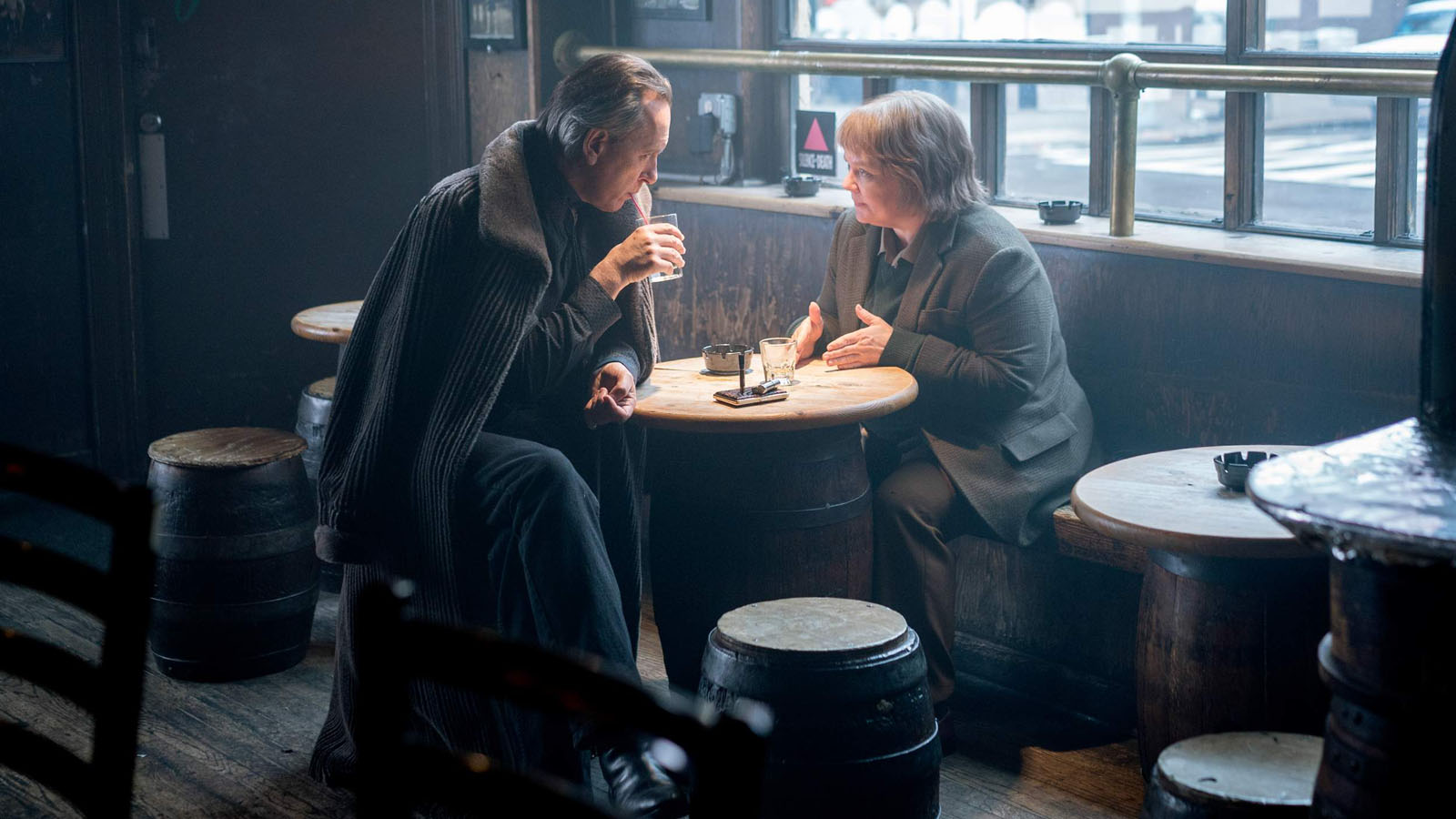“Forgotten with a Vengeance”

Before we all settle in for the Independent Spirit Awards tomorrow night and the Oscars on Sunday, here are a few notable items from this past week.
- Speaking of Oscars, though, Jeff Smith analyzes the five nominated songs at Observations on Film Art and points us to Thomas Dolby’s commentary on the songs and scores at Variety. But if you read only one Oscars-related piece this week, make it Kyle Stevens’s deceptively breezy but actually quite dense essay on Can You Ever Forgive Me? Among the many arguments Stevens packs into a mere three pages is a rebuttal to the idea that this is Melissa McCarthy’s movie—and as great as he is, it doesn’t belong to Richard E. Grant, either. Congratulations to both for their well-deserved nominations, and shame on the Academy for not recognizing director Marielle Heller’s work. “The baroque camera movements and editing patterns of directors from Hitchcock to Kubrick to Cuarón function as another form of opacity, always reminding the audience of the hand of their maker,” writes Stevens. “If Heller did present such overt choices, she would betray the far more complex values about style that the story she tells demonstrates have merit. The charge that a director lacks a signature has been used to dismiss the work of female and queer male directors as far back as Lois Weber and George Cukor.”
- As it happens, Literary Hub is running a piece on Lois Weber from the current issue of the Point. “Film historian Richard Koszarski wrote in 1975 that [Weber] had been ‘forgotten with a vengeance,’ as if the forgetting were aggressive, even calculated,” writes Sasha Archibald. “Strategic forgetting is one of the most Machiavellian tactics of the dominant culture: in response to it, the task becomes not only to reanimate the dead but to puzzle out the motives and mechanics of their effacement.”
- The story of German filmmakers who fled the Nazis for Hollywood, where they’d have a major influence on the stylistic evolution of film noir, is a well-known chapter in film history. Lesser known are the works they completed in Paris, where many originally intended to set up shop before the Germans invaded France, forcing them to flee again. These films, and in particular, those by Max Ophuls, Curtis Bernhardt, and Robert Siodmak, are the subject of Marc Svetov’s in-depth survey for Bright Lights Film Journal.
- Blogging may have waned with the rise of social media, but David Cairns’s Shadowplay is still as lively and engaging as it’s been for years now. He and Fiona Watson have even launched an accompanying podcast, Shadowcast. In a recent and still ongoing series, “2001: An Odyssey in Bits,” Cairns and the occasional contributor—Bruce Bennett, for example—rewatch Stanley Kubrick’s 1968 classic very, very closely.
- Our final item this week is actually a Twitter thread. Following a brief but excellent primer on how artists and intellectual property owners have used the law to stifle criticism, filmmaker Charlie Lyne turns to “perhaps the most damaging development of recent years,” the introduction of the Digital Millennium Copyright Act in 1998. If the DMCA had been available to Gillo Pontecorvo in 1961, would he have “denied the world access to one of film criticism’s canonical texts,” namely, Jacques Rivette’s scathing review of Kapò? The thread then wraps with a small but significant triumph.
For news and items of interest throughout the day, every day, follow @CriterionDaily.



